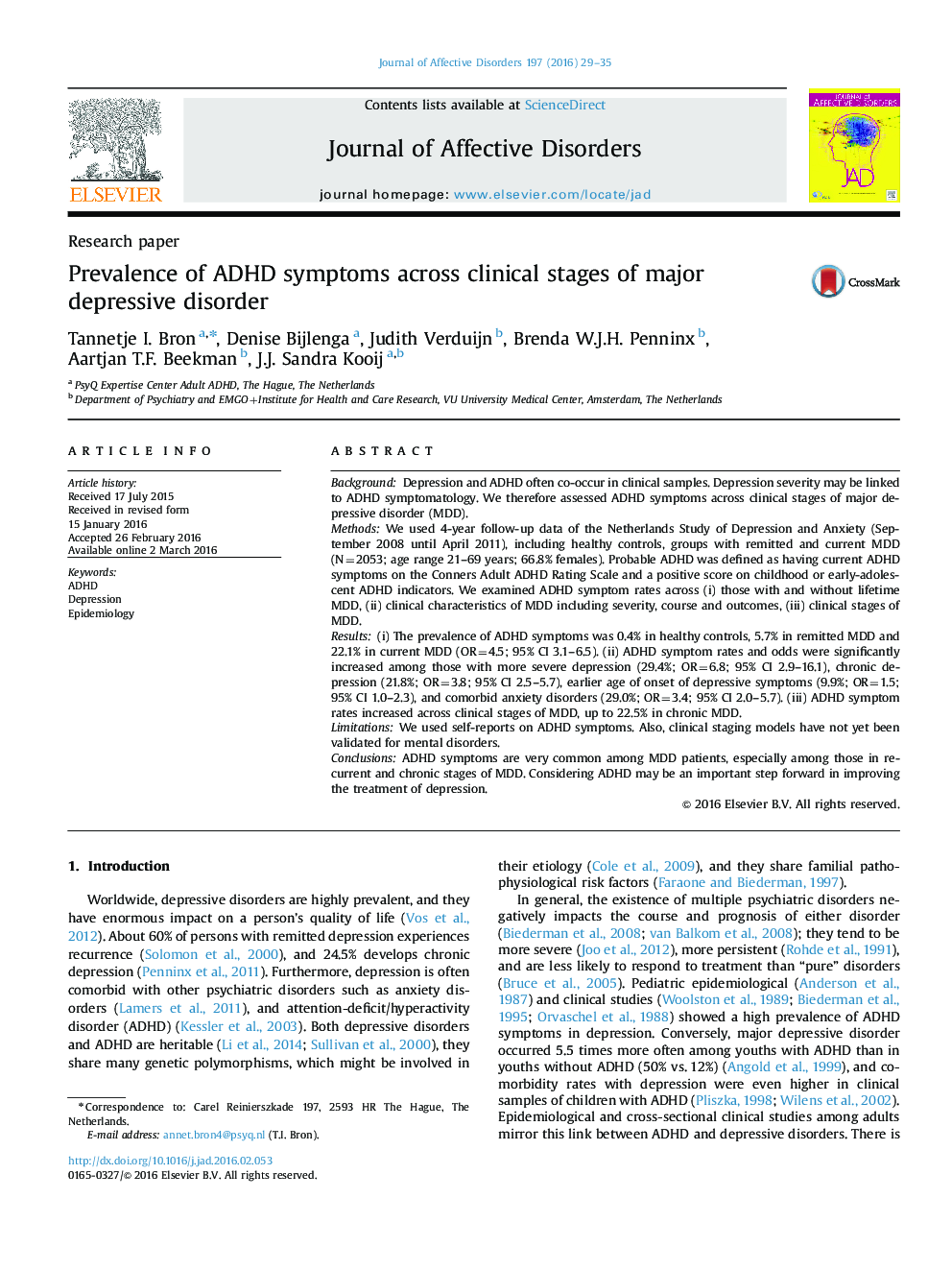| Article ID | Journal | Published Year | Pages | File Type |
|---|---|---|---|---|
| 6230237 | Journal of Affective Disorders | 2016 | 7 Pages |
â¢Probable ADHD is 7.5 times more prevalent in chronic MDD than in the general population.â¢ADHD symptoms may be overlooked due to comorbid conditions, such as depressive and anxiety disorders.â¢Diagnosis and treatment of ADHD may improve outcome of patients with treatment-resistant depression.
BackgroundDepression and ADHD often co-occur in clinical samples. Depression severity may be linked to ADHD symptomatology. We therefore assessed ADHD symptoms across clinical stages of major depressive disorder (MDD).MethodsWe used 4-year follow-up data of the Netherlands Study of Depression and Anxiety (September 2008 until April 2011), including healthy controls, groups with remitted and current MDD (N=2053; age range 21-69 years; 66.8% females). Probable ADHD was defined as having current ADHD symptoms on the Conners Adult ADHD Rating Scale and a positive score on childhood or early-adolescent ADHD indicators. We examined ADHD symptom rates across (i) those with and without lifetime MDD, (ii) clinical characteristics of MDD including severity, course and outcomes, (iii) clinical stages of MDD.Results(i) The prevalence of ADHD symptoms was 0.4% in healthy controls, 5.7% in remitted MDD and 22.1% in current MDD (OR=4.5; 95% CI 3.1-6.5). (ii) ADHD symptom rates and odds were significantly increased among those with more severe depression (29.4%; OR=6.8; 95% CI 2.9-16.1), chronic depression (21.8%; OR=3.8; 95% CI 2.5-5.7), earlier age of onset of depressive symptoms (9.9%; OR=1.5; 95% CI 1.0-2.3), and comorbid anxiety disorders (29.0%; OR=3.4; 95% CI 2.0-5.7). (iii) ADHD symptom rates increased across clinical stages of MDD, up to 22.5% in chronic MDD.LimitationsWe used self-reports on ADHD symptoms. Also, clinical staging models have not yet been validated for mental disorders.ConclusionsADHD symptoms are very common among MDD patients, especially among those in recurrent and chronic stages of MDD. Considering ADHD may be an important step forward in improving the treatment of depression.
